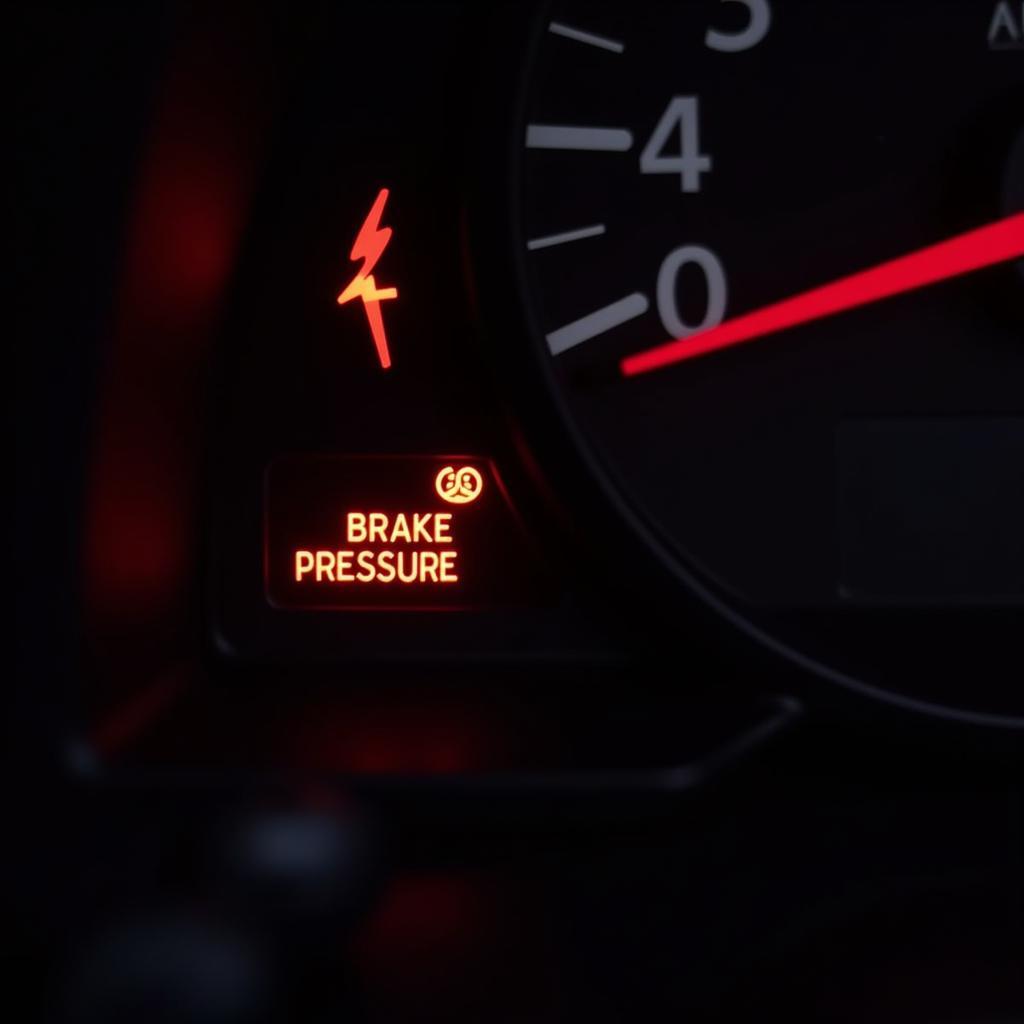The Warner 1302170001 electric trailer brake actuator is a vital component for safe trailering. However, like any complex system, it can sometimes encounter issues. This comprehensive guide will walk you through the common problems associated with the Warner 1302170001, providing you with the knowledge and tools to diagnose and potentially resolve these issues.
Understanding the Warner 1302170001 System
Before diving into troubleshooting, it’s essential to grasp the basics of how the Warner 1302170001 system operates. This electric brake actuator acts as the intermediary between your vehicle’s brake controller and your trailer’s brakes. When you apply your tow vehicle’s brakes, the controller sends a signal to the actuator, which in turn applies the appropriate braking force to the trailer axles.
Common Warner 1302170001 Problems and Solutions
Several factors can lead to problems with the Warner 1302170001 actuator. Here’s a breakdown of the most common issues and how to address them:
1. No Trailer Brakes
Possible Causes:
- Blown Fuse: Check the fuse related to your trailer brakes in your tow vehicle’s fuse box.
- Loose or Disconnected Wiring: Inspect all wiring connections between the actuator, brake controller, and trailer brakes.
- Faulty Brake Controller: A malfunctioning brake controller can fail to send the necessary signals to the actuator.
- Defective Actuator: Internal issues within the actuator itself can prevent it from functioning correctly.
Troubleshooting Steps:
- Check the Fuse: Locate and inspect the trailer brake fuse in your vehicle’s fuse box. Replace it if blown.
- Inspect Wiring Connections: Thoroughly examine all wiring harnesses and connections for any signs of damage, looseness, or corrosion. Secure any loose connections and repair or replace damaged wiring.
- Test the Brake Controller: Use a circuit tester or multimeter to verify that the brake controller is sending power to the actuator when the brake pedal is pressed. Consult your brake controller manual for specific testing procedures.
- Consider Actuator Replacement: If other components check out and the actuator is receiving power but still not engaging the brakes, it may need to be replaced.
2. Trailer Brakes Lock Up
Possible Causes:
- Short Circuit in Wiring: Damaged or exposed wires can create a short circuit, causing the brakes to lock up.
- Faulty Brake Controller: A malfunctioning brake controller can send incorrect signals to the actuator, leading to brake lockup.
- Sticking Actuator: Internal components within the actuator can become stuck, preventing the brakes from releasing properly.
Troubleshooting Steps:
- Inspect Wiring for Shorts: Carefully examine the entire brake wiring system for any signs of damage, exposed wires, or pinched areas. Repair or replace any damaged wiring.
- Check for Stuck Actuator: Disconnect the actuator from the trailer brakes. If the brakes release, the issue lies within the actuator. Consider replacing the actuator.
- Test or Replace Brake Controller: If wiring inspection doesn’t reveal any issues, the brake controller may be faulty. Test the controller or consult a qualified technician for diagnosis and potential replacement.
3. Inconsistent Braking Performance
Possible Causes:
- Poor Electrical Connections: Corroded or loose connections can disrupt the flow of electricity, resulting in inconsistent braking performance.
- Low Battery Voltage: Insufficient battery voltage can affect the actuator’s ability to function correctly.
- Worn Trailer Brake Components: Issues with the trailer brakes themselves, such as worn brake shoes or drums, can impact overall braking performance.
Troubleshooting Steps:
- Clean and Secure Electrical Connections: Disconnect and inspect all wiring connections for any signs of corrosion. Clean corroded connections and ensure all connections are secure.
- Check Battery Voltage: Test your tow vehicle’s battery voltage. Low voltage can lead to erratic actuator behavior. Charge or replace the battery as needed.
- Inspect Trailer Brake Components: Physically inspect your trailer’s brake shoes, drums, and other components for wear and tear. Replace any worn or damaged parts.
4. Overheated Brakes
Possible Causes:
- Improperly Adjusted Gain: An excessively high gain setting on the brake controller can lead to over-application of the trailer brakes, causing overheating.
- Dragging Trailer Brakes: Mechanical issues within the trailer brake system, such as a sticking caliper or seized wheel cylinder, can cause the brakes to drag, generating excessive heat.
Troubleshooting Steps:
- Adjust Brake Controller Gain: Consult your brake controller’s manual for instructions on properly adjusting the gain setting. Gradually reduce the gain until the trailer brakes engage smoothly without locking up.
- Inspect for Dragging Brakes: With the vehicle parked and the trailer brakes disengaged, try rotating each trailer wheel by hand. If a wheel is difficult to turn or feels like it’s dragging, there may be a mechanical issue within that brake assembly.
Preventive Maintenance for Warner 1302170001 Systems
Regular preventive maintenance can significantly reduce the likelihood of encountering problems with your Warner 1302170001 brake actuator:
- Inspect Wiring Regularly: Periodically check all wiring connections for looseness, corrosion, or damage.
- Keep Connections Clean and Protected: Apply dielectric grease to electrical connections to prevent corrosion and ensure a good electrical contact.
- Test Your Trailer Brakes: Before each towing trip, test your trailer brakes to ensure they are functioning correctly.
When to Seek Professional Help
While many Warner 1302170001 issues can be addressed with basic troubleshooting, more complex problems may require the expertise of a qualified trailer brake technician. If you’ve exhausted the troubleshooting steps outlined in this guide or are uncomfortable working on your trailer’s braking system, it’s best to seek professional assistance.
Conclusion
Maintaining a properly functioning trailer brake system is crucial for safe and reliable towing. By understanding the common problems associated with the Warner 1302170001 actuator and following the troubleshooting steps outlined in this guide, you can potentially resolve issues and keep your trailer brakes in optimal working condition. Remember, regular maintenance and prompt attention to any warning signs can help prevent more serious problems down the road.

